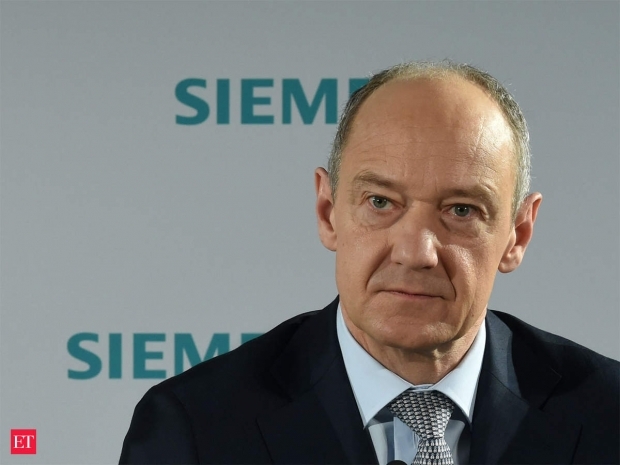The German industrial and technology group became the latest multinational to announce losses linked to its decision to leave Russia due to Tsar Putin’s war and international outrage and sanctions which followed.
Siemens Chief Executive Roland Busch described the conflict as a "turning point in history" and "We, as a company, have clearly and strongly condemned this war," Busch told reporters.
"We're all moved by the war as human beings. And financial figures must take a back seat in the face of the tragedy. Nevertheless, like many other companies, we’re feeling the impact on our business."
During the second quarter Siemens incurred 600 million euros in impairment and other charges mostly recorded in its train-making mobility business subsequent to sanctions on Russia, Siemens said.
Busch said further impacts were to be expected, mainly from non-cash charges related to the winding-down of legal entities, revaluation of financial assets and restructuring costs.
"From today's perspective, we foresee further potential risks for net income in the low- to mid-triple-digit million range, although we can't define an exact timeframe," he added.
Siemens shares dropped five per cent in early trading as the company missed analysts' expectations for second- quarter profit.
Siemens set up shop in Russia in 1851 to deliver devices for the telegraph line between Moscow and St Petersburg. It contributes about one per cent of Siemens' annual revenue, with most of the present day business concerned with maintenance and service work on high-speed trains.
Sites in Moscow and St Petersburg are now being ramped down, Busch said.
The costs weighed on Siemens' second quarter earnings, with net income halved to 1.21 billion euros ($1.27 billion), missing analysts' forecasts of 1.73 billion.
The company posted industrial profit of 1.78 billion euros, down 13% from a year earlier and also missing forecasts.
Siemens says things are not particularly bleak. It confirmed its full-year outlook, with revenue comparable revenue growth of 6-9 per cent for the full year, with a downturn in mobility expected to be compensated by faster growth in factory automation and digital buildings.




